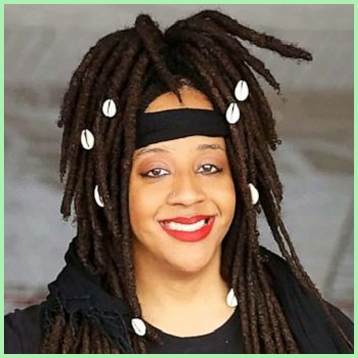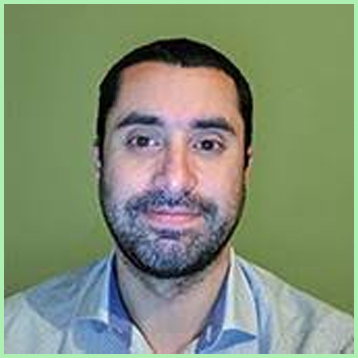PIT In Practice Profiles
Member/Grantee
University of Michigan
Author
Raymar Hampshire, Strategy and PIT Entrepreneur in Residence, Public Interest Technology Knowledge Network (PIT-KN)
Our team commissioned and provided writing support to a group of BIPOC public interest technology (PIT) practitioners. Their stories aim to bring underrepresented lived experiences under the spotlight. These stories specifically from social entrepreneurs represent an opportunity for the PIT field to better understand how their realities and lessons learned can provide context for the issues we’re addressing and how further collaboration and research with these practitioners might be achieved.
Developing knowledge from the collective stories of BIPOC practitioners at scale is part of our team’s larger effort of ensuring balanced, innovative, and inclusive solutions in the field of public interest technology through the creation of a knowledge network. Like many of the people in the stories that follow, I, too, didn’t realize my journey would eventually take me to the nascent and burgeoning field of PIT. It’s a field that is variously described, by the Ford Foundation as being about “teaching technology practitioners to focus on social justice, the common good, and/or the public interest” and by New America as “adopting best practices in human-centered design, product development, process re-engineering, and data science to solve public problems in an inclusive, iterative manner — continuously learning, improving, and aiming to deliver better outcomes to the public.”

As a social entrepreneur I’ve been conditioned to quickly meet startup development milestones — from developing business plans, minimum viable products, and proof-of-concepts, to presenting pitch decks, all at a frantic and often, frankly, unhealthy pace — without the luxury to stop, reflect, and document the embodied knowledge that I’ve developed along the way.
My journey can be summed up as spending a lot of time hustling forward only to wait until a funder decides whether to take a chance or not. I, too, share the experience of sifting through and pitching an army of gatekeepers, many of whom discount or don’t understand the unique and idiosyncratic lived experiences that I have. In the process, I’ve become keenly aware of the imbalance of power they possess. Having a lack of agency to actualize your dreams can become disempowering and lead to burnout for people who want to make change.
The inherent challenges of persuading and landing the necessary funding to scale your efforts as a social entrepreneur cannot be overstated, but it’s felt compounding at times for me. Looking back on various parts of my journey, I realize that many funding opportunities were never real and the juice was never worth the squeeze. While being in community with other social entrepreneurs, I’ve learned that many founders also regretted having spent so much time chasing funding opportunities down dead-end roads.
Over the years I’ve obsessed about how to disrupt the power dynamics within the startup ecosystem that rewards only a small number of founders from historically marginalized communities who find a way to break through and meet their funding milestones. Getting to a point where I’m more concerned with rewriting the rules than playing along has required a great deal of reflection and soul-searching during the COVID-19 pandemic:
How can I focus, balance, and bring to bear the various experiences I have had as co-founder and social entrepreneur that are also animated by a desire of better public policy and social innovation, and as a consultant who worked with government agencies to identify insights in big data and develop models to make operational decisions more objective, all while reconciling the challenges and lessons learned from my time developing national programming for a presidential foundation?
It has meant plowing through uncertainty in a field taking shape rapidly
and inviting other social entrepreneurs to explore this space with me.
It has meant shedding some of the bad habits I developed as an entrepreneur and taking a page from academia by incorporating a slower pace — one more intentional and thoughtful about research and development.
In 2019, my journey brought me to the field of public interest technology through a PIT experiential learning course at University of Michigan, where I led efforts to match School of Information and Ford School of Public Policy graduate students with Detroit-based tech social entrepreneurs. The course was a mix of practical application and theoretical concepts on algorithmic biases and structural barriers. Based on this experience, I worked collaboratively to document findings on building career pathways for diverse public interest technology entrepreneurs (previously described as social entrepreneurs), where we found that this segment of practitioners didn’t identify as being included within the field of PIT despite sharing the same goals and approaches as technologists also working to create equitable solutions. We found that there is a lack of visibility of people who are most affected by the multitude of problems that PIT hopes to solve, which highlighted an opportunity to further democratize the knowledge space by helping to usher in a community of BIPOC PIT entrepreneurs.
Finally, like the journey through the startup ecosystem itself, the binding constraint to meeting growth and impact milestones within PIT also has less to do with technical expertise and more to do with the challenges related to having thin or nonexistent networks within the field, in that the lack of a visible critical mass of BIPOC practitioners in PIT robs them of representation. These issues create a vicious cycle. Reversing this trend for BIPOC PIT entrepreneurs is key to our focus, and we intend to dedicate our efforts to this.
Designing systems that democratize and scale knowledge development driven by storytelling from communities of BIPOC PIT entrepreneurs is difficult, but the pursuit is worthwhile. It’s a recognition that the journey that PIT entrepreneurs are on is just as important as their destination. It’s an acknowledgment that there is value in the knowledge possessed by the founder that gives birth to the founder’s social venture. Both are worthy of examination, recognition, and funding.
These stories are a start to creating that future.






